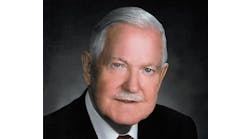GE and Japanese factory automation pioneer Fanuc caused something of a stir in automation circles in mid-August 2009 by announcing that they have agreed to dissolve their 23-year-old GE Fanuc Automation Corporation joint venture. In recent years, the two halves of the joint venture, the one devoted essentially to factory and process automation hardware, software and services and embedded computing systems under the recently adopted GE Fanuc Intelligent Platforms brand, the other to machine tool CNC (computer numerical control) products, have had little to do with each other in practice, although in the early days they were frequently seen, for example, on the same exhibition stand.
Amicable Divorce
Now, however, that de facto separation is to be formalized in what appears to be entirely amicable divorce proceedings that are expected to be completed by the end of the year and perhaps reflect the fact that, while PLC and CNC technologies had much in common a quarter of a century ago, they have diverged to the extent where, while one remains firmly embedded on the factory floor, the other is seen increasingly as a subset of IT.
Under the terms of the agreement, GE will retain all of the software, services, embedded systems and control systems businesses worldwide, while Fanuc retains the global CNC business. In the industrial and process automation world, the only immediate change apparent to customers will be the dropping of Fanuc from the company name, which becomes simply GE Intelligent Platforms, while the company itself will continue to be led by its current CEO, Maryrose Sylvester. Explaining the logic behind the decision to separate the two businesses, Fanuc honorary chairman Dr. Seiuemon Inaba said that, over the life of the joint venture, "markets and opportunities also have changed dramatically, and both companies further expanded into adjacent segments. Today's market conditions are such that it's imperative we pursue these expanded opportunities, and while we have achieved great things together, it's in both our best interests that we focus our efforts on industry opportunities unique to our respective companies and that will deliver greater benefits to both our companies."
For GE, explained Sylvester, "This change will mean a continued, intense focus on serving our customers around the world while continuing to invest in significant growth platforms, such as process control systems, enterprise and automation software and embedded computing, as we continue to build further expertise around the GE vertical infrastructure segments. Our top priority is a smooth completion of transition and continuity for all customers, business partners and employees. We are committed to delivering our customer commitments in every segment of our business."
Possible Implications
Initially, most commentators have taken the view that the termination of the joint venture will have little effect on the Intelligent Platforms business and its approach to and impact on the market. However, it is worth considering the extent to which having to accommodate its joint venture partner's wishes may have constrained GE's ability to fulfil its own ambitions in recent years.
Since the proposed and all but completed acquisition of Honeywell ran up against the immovable object of the European Commission's competition policy back in 2001, GE, through the Fanuc joint venture, has continued to show a keen interest in industrial and process automation, both through the development of its distinctive hardware platform and through a series of SCADA/HMI and MES software acquisitions of which arguably the most notable was the purchase of Intellution from Emerson in 2002. However, while it now has a software portfolio comparable with either Rockwell Automation or Invensys Operations Management, the latter through its Wonderware brand, GE's hardware operation is still a long way from meeting the Jack Welch criterion of being either number one or number two in any market in which it participates, be that in either the factory automation-oriented PLC business or in the process automation-directed DCS sector.
Formidable Organization
As a result, GE has long been the subject of speculation that it might make a major acquisition in the industrial or process automation market with Invensys, Rockwell, and Honeywell Process Solutions all mentioned at one time or another as potential targets. Welch's departure and the onset of recession may have somewhat modified GE's normally all-conquering stance, but it remains a formidable organization with huge resources and a widely acknowledged expertise not just in making acquisitions, but in making them work. If the GE Fanuc joint venture has until now constrained the company to playing in the automation market with one hand tied behind its corporate back, then the dissolution of that relationship could be a precursor to radical change in the automation pecking order.



